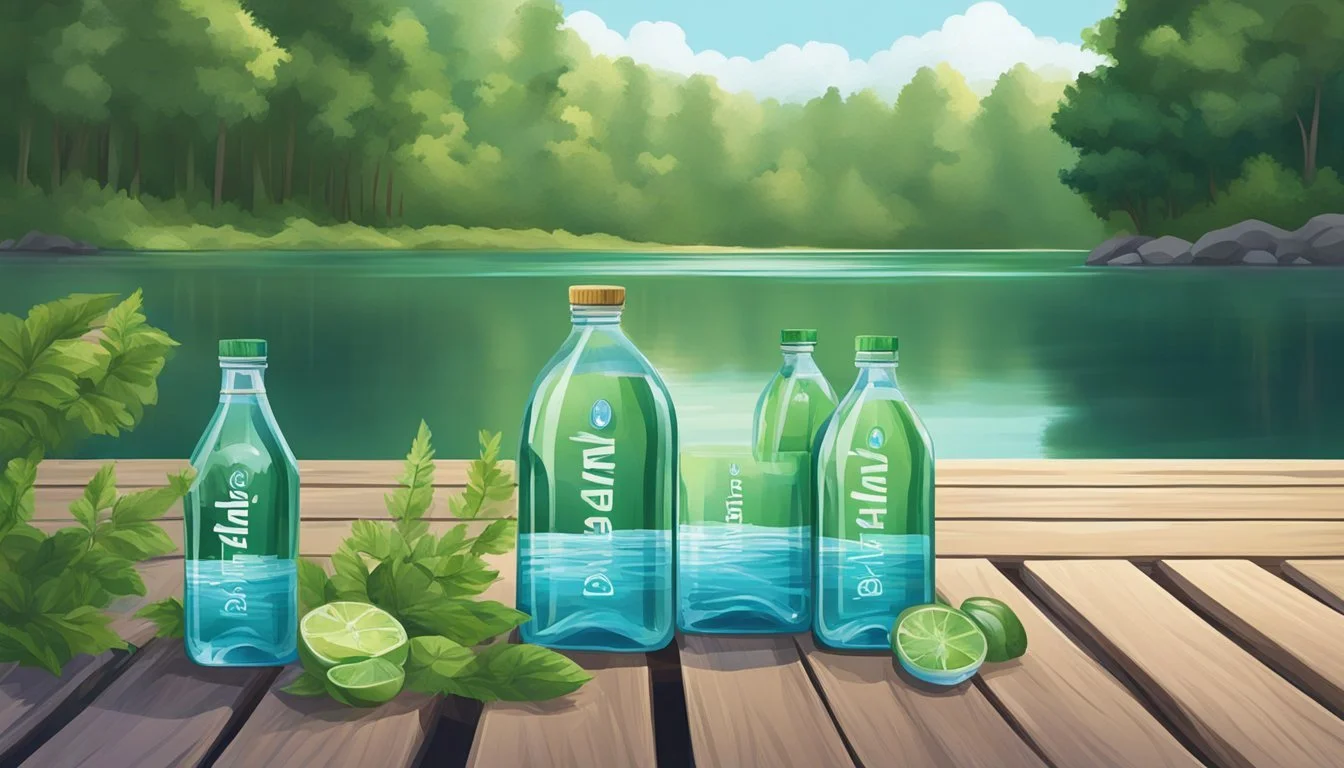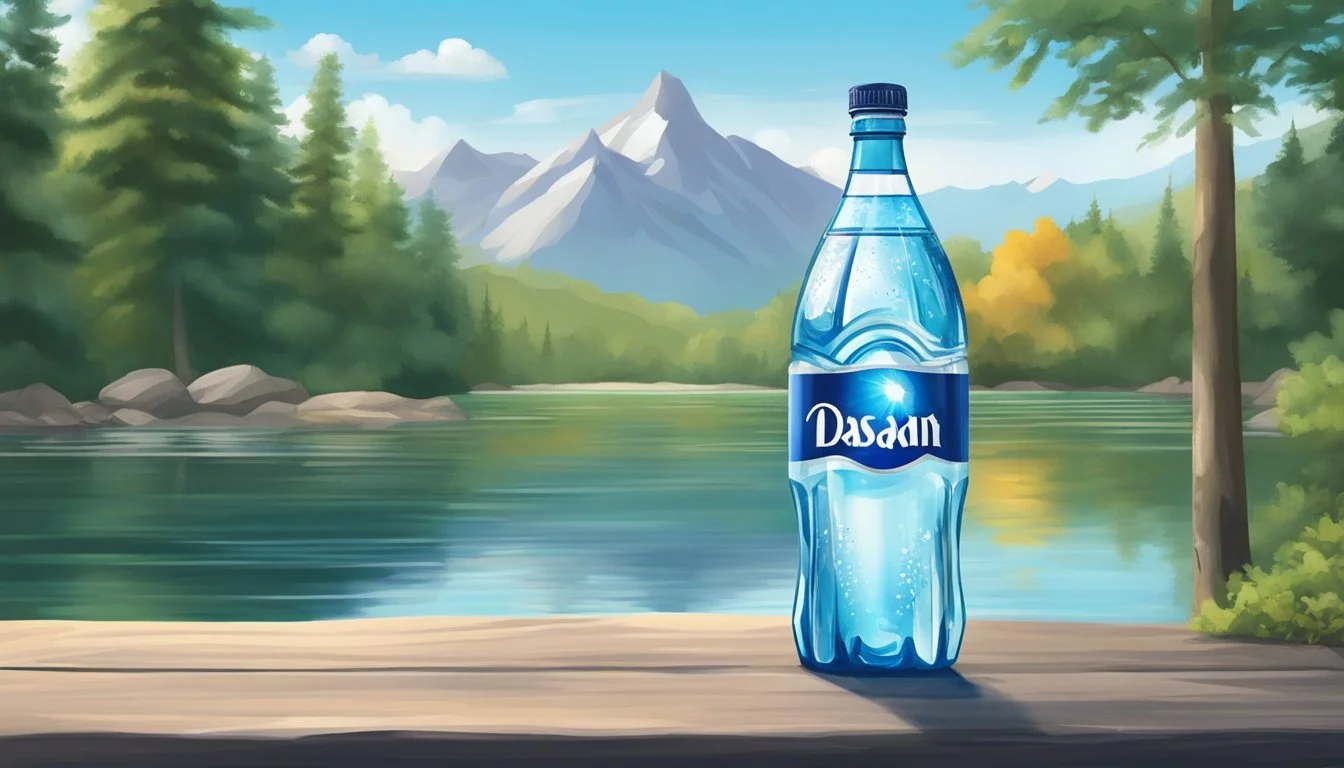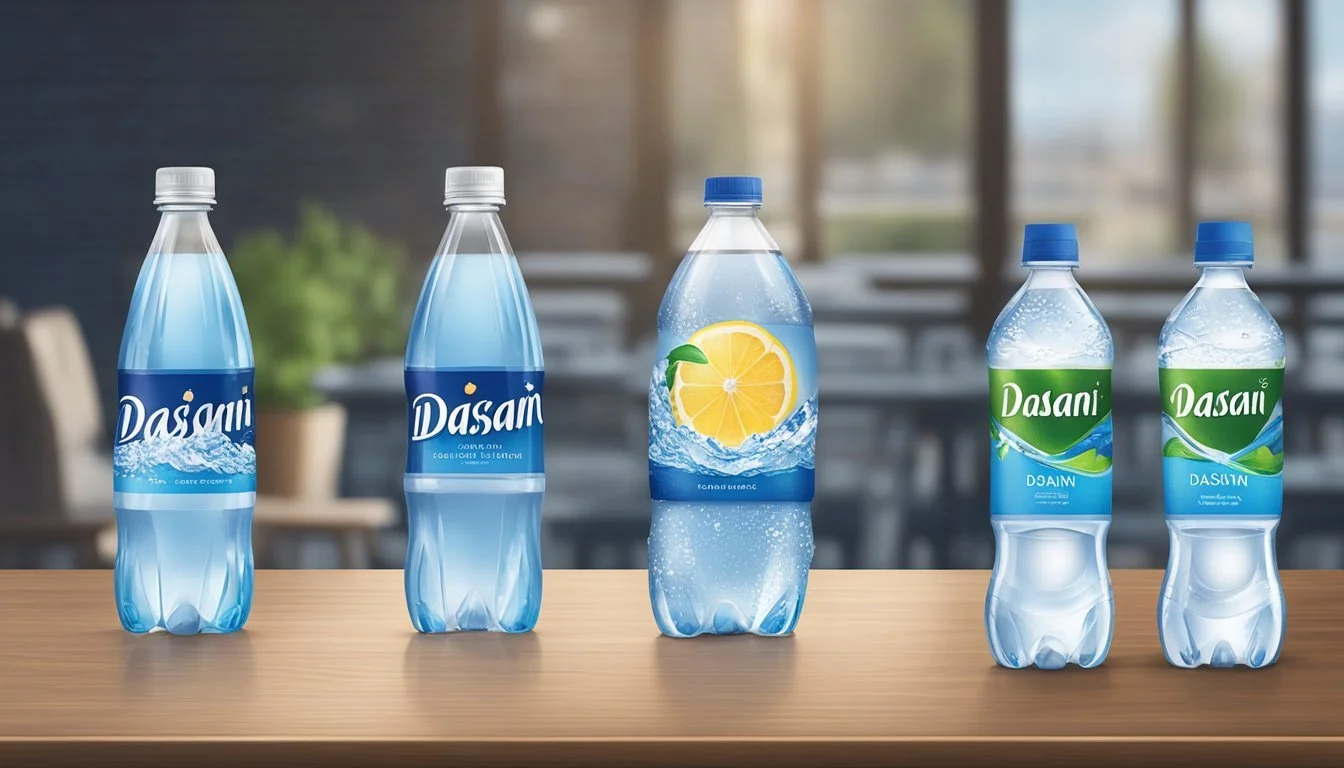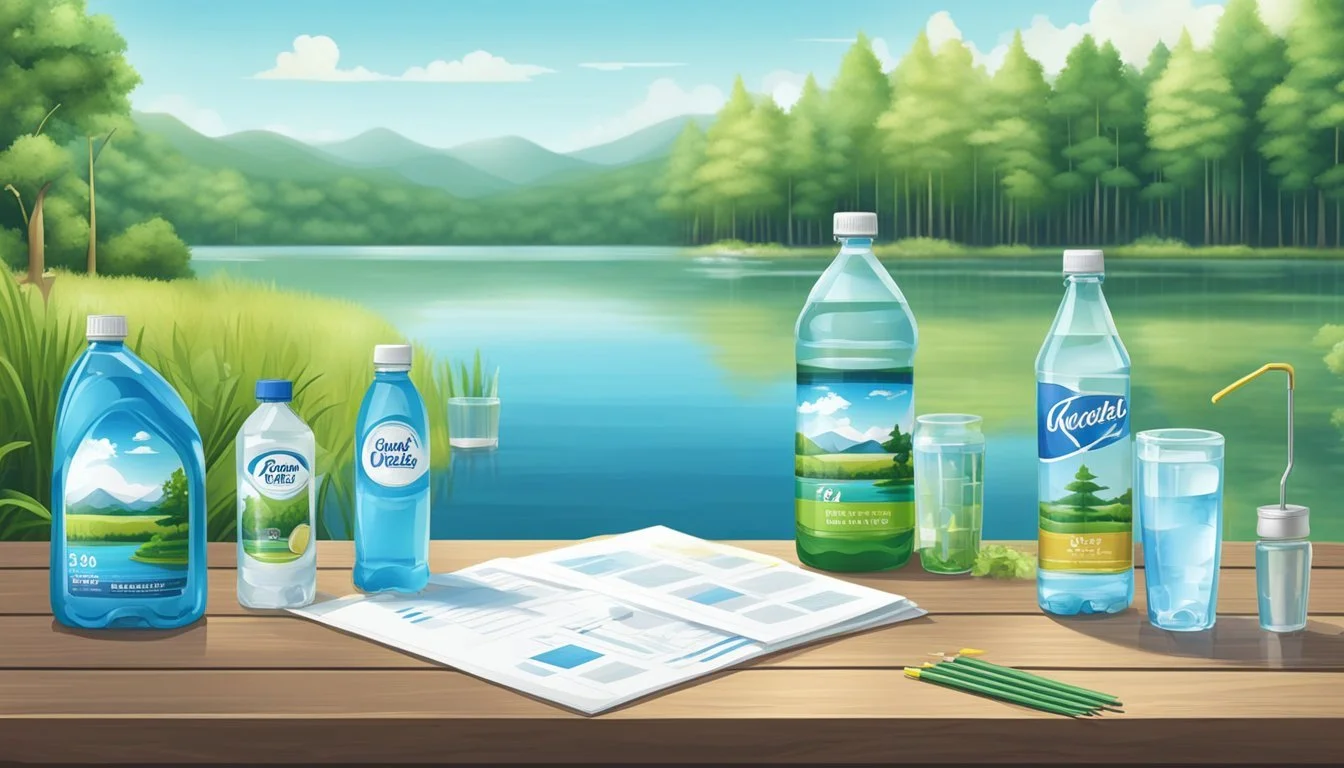Crystal Lake vs. Dasani
Comparing Bottled Water Quality and Taste
When it comes to bottled water, many consumers find themselves choosing between established brands like Crystal Lake and Dasani. Each brand boasts unique qualities, but some key differences set them apart. Crystal Lake offers pristine, natural spring water sourced from carefully selected springs. The water goes through minimal processing, ensuring that the natural minerals remain intact, providing a pure and refreshing taste.
Dasani, on the other hand, is a product of Coca-Cola and is known for its rigorous purification process. Enhanced with a specific blend of minerals for taste, Dasani is presented in 100% recyclable bottles, catering to environmentally-conscious buyers. Overall, Crystal Lake's naturally sourced water gives it a more authentic taste compared to Dasani's enhanced, purified water.
For consumers evaluating factors like taste, source, and packaging, these distinctive qualities are crucial. Those who prefer a more naturally-derived water often gravitate towards Crystal Lake, while others might appreciate Dasani's consistent, purified flavor and eco-friendly packaging.
Composition and Source
When comparing Crystal Lake and Dasani, it's essential to understand their composition and the sources from which they originate. Each brand's unique approach to mineral content, purification, and filtration influences their final product.
Natural Sources and Origin
Crystal Lake draws its water from natural springs, ensuring a source that is frequently pristine and rich in minerals. Sourced from carefully selected locations, the water often maintains its natural qualities, untouched by significant processing.
Dasani, on the other hand, starts with municipal tap water. Despite its urban origins, the water undergoes extensive purification, transforming it into a product that meets high standards. Dasani does not rely on natural springs, which often differentiates its source from more naturally derived options like Crystal Lake.
Mineral Content and Additives
Crystal Lake typically includes naturally occurring minerals such as calcium, magnesium, and potassium. These minerals contribute to both its taste and nutritional profile. Since it originates from spring sources, the water maintains a range of electrolytes without the need for artificial enhancement.
Dasani employs a different strategy. During its purification process, minerals like magnesium sulfate, potassium chloride, and salt are deliberately added back in. These minerals are intended to enhance the taste and offer some nutritional benefits. The addition of these minerals differentiates Dasani from other purified water brands, and it is particularly noteworthy for those looking for added electrolytes.
Purification and Filtration Processes
Crystal Lake often relies on minimal filtration processes, intended to preserve the natural composition of the water. Basic filtration methods like particulate filtration are common, ensuring the water is clean without stripping away its natural properties.
Dasani uses more intensive purification methods. The process usually starts with reverse osmosis, a technique that removes impurities and contaminants from the municipal tap water. This is often followed by further filtration and ozone sterilization, ensuring the water is not only pure but also safe for consumption. Dasani’s purification stages ensure a consistent and reliable product, despite its less natural origins.
Taste and Quality Perception
Exploring the taste and quality perception of Crystal Lake and Dasani reveals key differences and consumer preferences. While Crystal Lake's taste focuses on its natural source, Dasani emphasizes added electrolytes.
Taste Profile Comparison
Crystal Lake water is often praised for its natural and crisp taste. Sourced from freshwater springs, it maintains a clean flavor profile without significant additives. This appeals to consumers who prefer a more unaltered and nature-driven taste.
Dasani, produced by Coca-Cola, incorporates added minerals and electrolytes, giving it a more distinct and possibly metallic taste. These additions are designed to enhance the water flavor but can result in varied consumer experiences. Some find Dasani's taste refreshing and robust, while others may perceive it as too fabricated.
Brand Key Attributes Common Descriptions Crystal Lake Natural, clean, crisp Fresh, unaltered Dasani Enhanced with minerals and electrolytes Distinct, robust, slightly metallic
Consumer Assessments and Brand Reputation
Crystal Lake enjoys a strong reputation for its quality and purity. Many consumers value its commitment to preserving natural properties. This positive perception is driven by Crystal Lake's consistent taste and dedication to source integrity, aligning with preferences for unmodified bottled water.
Dasani has a more mixed reputation. While some consumers appreciate its readily available and reliably uniform taste, others are critical of its added minerals, which contradict the aim for pure water. The brand's association with Coca-Cola both helps in widespread accessibility and potentially detracts from its appeal to purists.
Consumer feedback from water sommeliers like Martin Riese further highlights these perceptions. Riese often emphasizes the importance of source transparency and natural composition, areas where Crystal Lake typically excels.
Health and Hydration
When comparing Crystal Lake and Dasani, it's vital to focus on their hydration efficiency and health benefits. Each brand offers a unique composition that impacts hydration, sodium content, and overall safety for consumption.
Hydration Efficiency
Hydration is a significant factor when evaluating bottled water. Crystal Lake claims to provide natural spring water with a balanced pH level close to 7, ensuring it is neutral. This helps the body absorb water more efficiently. In contrast, Dasani water is purified and often includes a blend of minerals. These minerals, such as magnesium sulfate and potassium chloride, are meant to enhance taste, but they can also influence hydration.
Dasani's purification process typically involves reverse osmosis, which removes impurities but can also strip natural electrolytes. The added minerals aim to replenish these lost electrolytes. Both brands provide essential hydration, but the added minerals in Dasani might cater to those looking for a bit more than just water.
Health Benefits and Considerations
Safe drinking water is crucial, and both Crystal Lake and Dasani meet safety standards. Crystal Lake offers natural spring water with natural electrolytes, free from artificial additives. This makes it an excellent choice for those seeking a more natural hydration option without added sodium.
Dasani incorporates added salts, which can be beneficial in preventing dehydration, especially for those who engage in intense physical activities. However, individuals watching their sodium intake should be mindful of this. While Dasani provides enhanced water, the presence of artificial ingredients might not appeal to everyone seeking pure, untouched water.
Alkalinity levels also differ, with Crystal Lake typically hovering around a neutral pH, whereas Dasani's mineral content can slightly alter its pH. The ideal choice depends on personal health needs and taste preferences. Both water options are safe, but Crystal Lake offers a more natural experience, while Dasani adds elements that some might find beneficial.
Environmental Impact and Sustainability
Both Crystal Lake and Dasani take different approaches to packaging, recycling, and water source conservation. Each brand's practices contribute to their overall environmental footprint.
Packaging and Recycling
Dasani, a product of The Coca-Cola Company, commonly uses single-use plastic bottles. These bottles contribute significantly to landfill waste and pollution. Although Dasani encourages recycling, the effectiveness depends on consumer behavior and local recycling programs.
Crystal Lake, on the other hand, places a strong emphasis on using environmentally friendly packaging. They offer biodegradable and recyclable materials, aiming to reduce waste. This approach not only lowers environmental impact but also encourages sustainable consumer habits.
Efforts in recycling and packaging design indicate a company’s commitment to sustainability. Consumers must consider the life cycle of the packaging and its ecological footprint.
Water Source Conservation
Dasani sources its water from local municipal supplies. They undergo extensive purification processes including reverse osmosis. However, this reliance on municipal sources can add pressure on local water supplies, impacting community access to safe drinking water.
Crystal Lake sources its water from natural springs, which necessitates responsible water management. They often invest in conservation efforts to maintain the sustainability of their water sources. Proper management ensures the long-term viability of these natural resources, providing an environmentally sustainable option for consumers.
Both brands face challenges but show varied dedication to conserving their water sources. Crystal Lake's emphasis on management and Dasani's comprehensive purification demonstrate different strategies in ensuring safe drinking water.
Brand Strategies and Market Presence
Crystal Lake and Dasani have distinct strategies that affect their market positions. Their marketing tactics, brand comparisons, market share, and consumer bases provide a comprehensive view of their presence in the bottled water industry.
Marketing Tactics and Brand Comparisons
Dasani, owned by Coca-Cola, emphasizes its purification process, which includes reverse osmosis and the addition of a proprietary blend of minerals. This marketing angle suggests a clean and crisp taste.
Crystal Lake, distributed by Rite Aid, presents itself as a premium brand, focusing on its high-quality packaging and taste. It positions itself as a convenient and accessible option found in drugstores.
Brand Comparisons:
Dasani: Focuses on purity and a crisp mineral-enhanced taste.
Crystal Lake: Emphasizes premium packaging and accessibility in drugstores.
Both brands leverage the reputation of their parent companies. Coca-Cola's global reach supports Dasani's market presence, while Rite Aid's retail footprint aids Crystal Lake.
Market Share and Consumer Base
Dasani enjoys a substantial share of the bottled water market, owing to Coca-Cola's extensive distribution network. It appeals to consumers looking for reliability and a well-known name.
Crystal Lake targets a niche segment, available primarily in Rite Aid stores. This limits its market reach compared to more widely distributed brands. However, it appeals to Rite Aid customers seeking convenience.
Consumer Base:
Dasani: Broad appeal due to widespread availability and strong branding.
Crystal Lake: Niché appeal focused on convenience for drugstore shoppers.
Both brands cater to distinct segments within the bottled water market, with Dasani leveraging its global presence and Crystal Lake capitalizing on retail exclusivity.
Price and Accessibility
When considering bottled water options, cost and availability can be crucial factors that influence consumer choices. Pricing varies between brands, as does the regional accessibility of each product.
Cost Comparison for Consumers
Crystal Lake and Dasani differ significantly in cost. Dasani tends to be marketed as an inexpensive option, with a typical price around $1.00 for a 500 ml bottle in states like Florida and Michigan.
In contrast, Crystal Lake is often positioned as a premium brand, priced closer to $1.75 for a similar-sized bottle. Special promotions or bulk purchasing can sometimes lower the cost, but generally, Crystal Lake remains the more expensive choice.
The price gap between these two brands may make Dasani the go-to option for budget-conscious shoppers while consumers seeking a premium experience may opt for Crystal Lake.
Availability Across Different Regions
Dasani enjoys widespread distribution and is readily available in most grocery stores, convenience stores, and supercenters across the United States.
It can be easily found in states like Maine, Florida, and Michigan, ensuring accessible hydration options for a broad customer base. Crystal Lake, on the other hand, has more limited regional availability.
It is most commonly available in specialized grocery stores and upscale locations, especially in urban centers and specific affluent areas.
Consumers residing in rural or less populous regions may find it more challenging to locate Crystal Lake without resorting to online purchases. The brand’s selective distribution strategy highlights its niche market positioning compared to Dasani's mass-market appeal.
Legislation and Industry Standards
Bottled water, including Crystal Lake and Dasani, must adhere to strict regulations and industry standards to ensure safety and quality. These regulations are enforced by government bodies and industry organizations.
FDA Regulations and Compliance
The U.S. Food and Drug Administration (FDA) regulates bottled water under the Federal Food, Drug, and Cosmetic Act. Bottled water must meet the same quality standards as public drinking water. The FDA mandates testing for contaminants such as lead, microbial impurities, and synthetic organic chemicals.
Bottled water companies must ensure their products are free from harmful substances. Additionally, they are required to follow Good Manufacturing Practices (GMPs), which cover bottling, packaging, and labeling processes. Frequent inspections and monitoring help maintain compliance with these standards.
Certification and Industry Benchmarks
The International Bottled Water Association (IBWA) sets additional benchmarks beyond FDA requirements. Member companies must adhere to the IBWA Bottled Water Code of Practice, which includes standards for source protection, bottling processes, and finished product testing.
Third-party audits enforce these standards. Being IBWA-certified signals a commitment to high-quality and safe drinking water. Companies may also pursue NSF International certification, which involves rigorous testing for contaminants and regular facility inspections.
These certifications offer consumers an extra layer of confidence in the product's safety and quality.
In-Depth Brand Analysis
Crystal Lake and Dasani offer distinct characteristics in terms of their sources, treatment processes, and unique features. Here's a closer look at what each brand brings to the table.
Crystal Lake: An Overview
Crystal Lake's water source is natural spring water, offering a refreshing and clean taste that appeals to many consumers. This brand emphasizes its commitment to sustainability, using eco-friendly packaging and responsible water sourcing practices.
Crystal Lake's treatment process is minimal, preserving the natural minerals that contribute to its distinct flavor. This makes it a preferred choice for individuals seeking a natural hydration option without added chemicals or preservatives.
The brand consistently ranks high in taste tests and is often associated with premium quality, making it a strong competitor in the bottled water market.
Dasani: An Overview
Dasani, owned by Coca-Cola, sources its water from local municipal supplies and then purifies it using a method known as reverse osmosis. This process eliminates impurities and ensures consistent quality.
In addition to purification, Dasani enhances its water with a blend of minerals, including magnesium sulfate, potassium chloride, and sodium, to improve taste.
Dasani has faced controversies, notably when it was revealed that the water comes from local tap sources. Despite this, many consumers appreciate its reliable quality and availability, making it a widely recognized brand.
Though it has faced criticism in taste tests, Dasani's rigorous filtration and mineral enhancement process ensure a clean, crisp taste.
More About Crystal Lake
Aqua Carpatica vs Crystal Lake: Which Bottled Water is Better?
Cascade Mountain vs Crystal Lake: Which Bottled Water is Better?
Core Hydration vs Crystal Lake: Which Bottled Water is Better?
Crystal Geyser vs Crystal Lake: Which Bottled Water is Better?
Crystal Lake vs Essence pH10: Which Bottled Water is Better?
Crystal Lake vs Proud Source: Which Bottled Water is Better?
Hawaii Volcanic vs Crystal Lake: Which Bottled Water is Better?
Hawaiian Springs vs Crystal Lake: Which Bottled Water is Better?
Ice Mountain vs Crystal Lake: Which Bottled Water is Better?
Icelandic Glacial vs Crystal Lake: Which Bottled Water is Better?
Kirkland Signature vs Crystal Lake: Which Bottled Water is Better?
Liquid Death vs Crystal Lake: Which Bottled Water is Better?
Mountain Valley Spring Water vs Crystal Lake: Which Bottled Water is Better?
Nestle Pure Life vs Crystal Lake: Which Bottled Water is Better?
Poland Spring vs Crystal Lake: Which Bottled Water is Better?
Purely Sedona vs Crystal Lake: Which Bottled Water is Better?
Richard's Rainwater vs Crystal Lake: Which Bottled Water is Better?
San Pellegrino vs Crystal Lake: Which Bottled Water is Better?
Simple Truth vs Crystal Lake: Which Bottled Water is Better?
Solan de Cabras vs Crystal Lake: Which Bottled Water is Better?
Talking Rain AQA vs Crystal Lake: Which Bottled Water is Better?
Whole Foods 365 vs Crystal Lake: Which Bottled Water is Better?
Whole Foods Italian Still Mineral water vs Crystal Lake: Which Bottled Water is Better?







